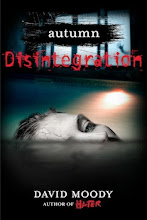Today's little rant that's occupying my mind: dystopian vs utopian fiction. The blog post title, paraphrased from Stephen Hawking's appearance on an episode of "The Simpsons," illustrates that not all things are as good as they might appear on first blush. At least, that's how utopias are portrayed in the literary world.
Let's take H.G. Wells' "The Time Machine." Time traveler ends up way in the future in a seemingly utopian (to some people) world. Everyone appears young, the weather is beautiful, food is plentiful, naptime is encouraged as is random "coupling." What could be wrong with this world?
Um, the attractive young people are hunted and eaten by hideous and strong humanoid creatures that live below ground. BAM! Utopia to dystopia in a blink.
Or how about Aldous Huxley's "Brave New World?" The future exists as a World State with a finite population, well oiled work force, bountiful resources and general peace. All at the cost of having your future dictated by chemical control, your daily life moderated by your social standing and your humanity stifled and debased. Utopia is in the eye of the beholder.
So it appears that "dystopian" is the way to go, even if you mask it with a false-utopia. I can rattle off dystopian works (Hunger Games, Fahrenheit 451, 1984, Children of Men, The Running Man, The Passage, The Road, Logan's Run, Lord of the Flies, etc, etc.) but how many true Utopian novels are there? I couldn't name any. Amazon lists Edward Bellamy's "Looking Back" and Huxley's "Island" as utopian, but I'll have to put them on my reading list. (Also, someone please argue for "Dinotopia" because I would live there in a heartbeat!)
The point is, why are we so interested in dystopia instead of utopia? Is it as simple as not enjoying a world where everything is perfect? Or is it more about wanting a story so full of misery that it forces the characters (and us as readers) to find something to hope for? Do we just like to watch people suffer and struggle? Does it give us a glimpse of our potential future, forcing us to ask ourselves "Could I survive that?"
Personally, I dig dystopian. There's so much ruination and an overhanging sense of dread in those novels; they're just saturated with depression and angst. And yes, it's fun to see our heroes succeed (or not, Brave New World?) in the end. Perhaps it's the social commentary that's inherent in dystopian works that keeps people coming back for more. Let's face it, societies will always be too liberal or too conservative, governments too ineffectual or too militaristic. Masses of humanity are always described as mindless, toothless sheep that follow the status quo and our heroes are inevitably those who buck the system.
What about a true utopia? (Please feel free to comment on what this means to you, since that interpretation varies widely, I'm sure. Maybe that's why "utopia" as a genre doesn't do well across the board.) Imagine a world that is, in a word, paradise: every life is revered, every mouth fed and ailment cured; a place that exists in perfect harmony between technology and nature; a land that is self-sufficient from the production of food, to the distribution of resources, to the recycling of wastes; a place where education and free-thinking are paramount, contributing to fresh new ideas and inventions, schools of thought and discoveries on every academic level. Imagine a world where competition exists only for the betterment of everyone and at the expense of none. Imagine a system with no currency because there is no need.
Maybe it's the idealist in me or just an overactive imagination (good thing for a writer to have I'd say). But, I can see this world. Do I think we'll ever achieve it? Of course not. The human condition as it stands today will not allow it. But that doesn't mean one couldn't write a book about it. Though, in a perfect world, that book would write itself!
~VK
Subscribe to:
Post Comments (Atom)









No comments:
Post a Comment